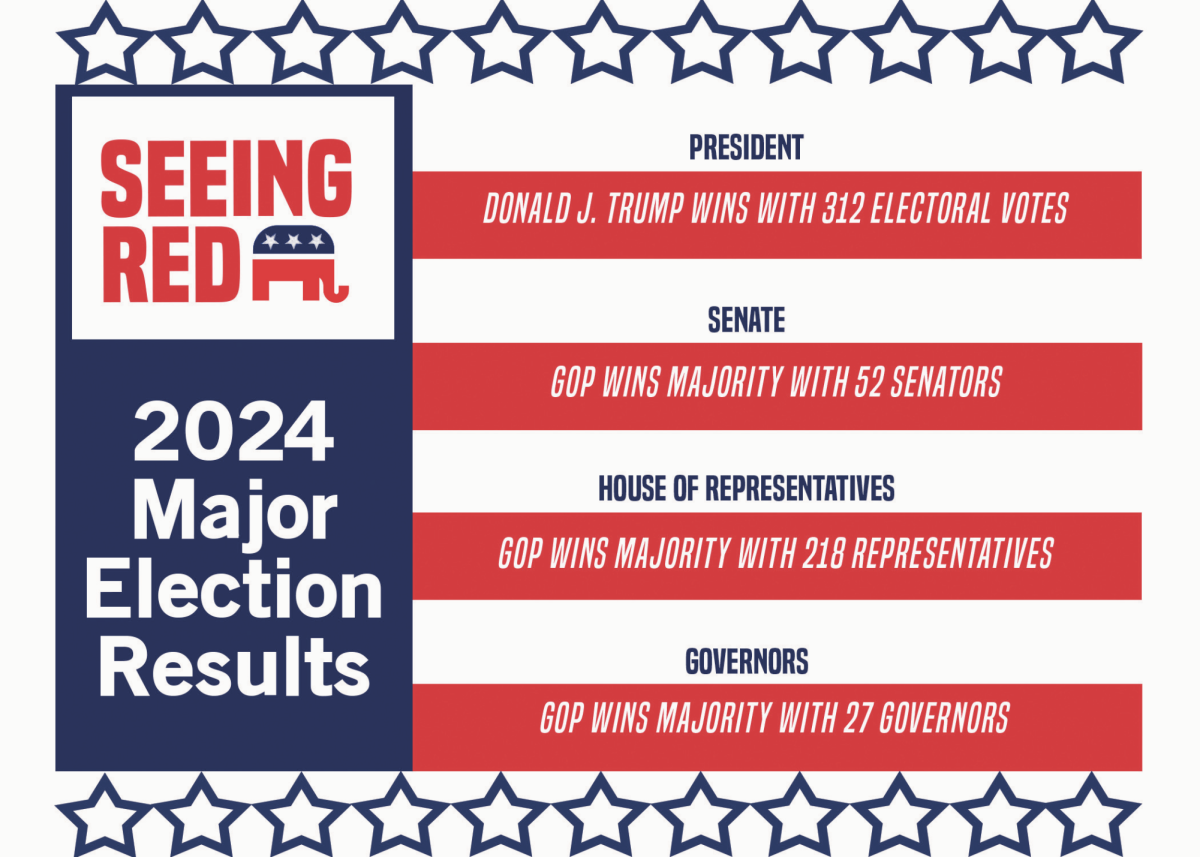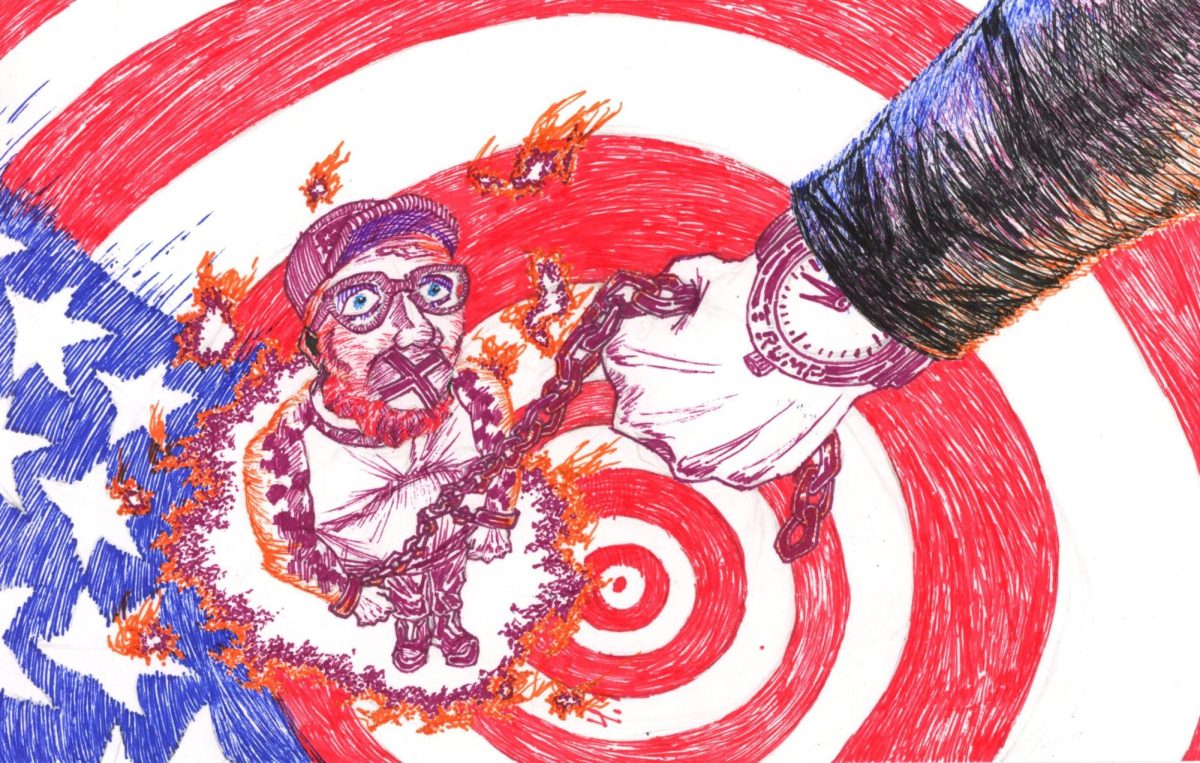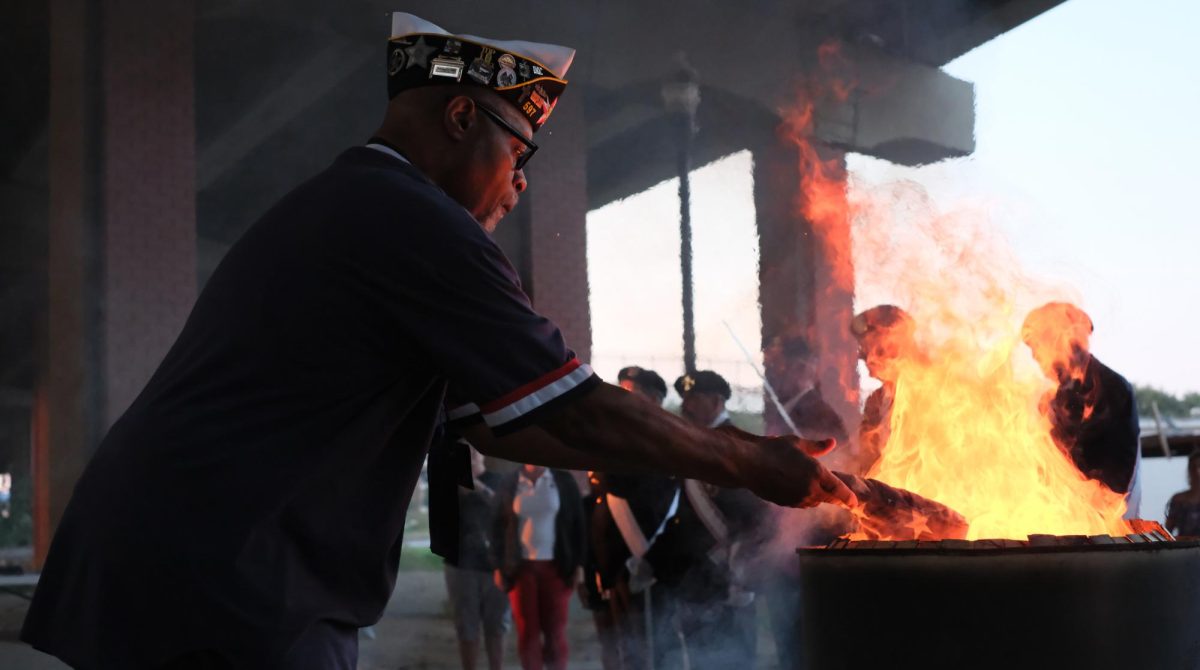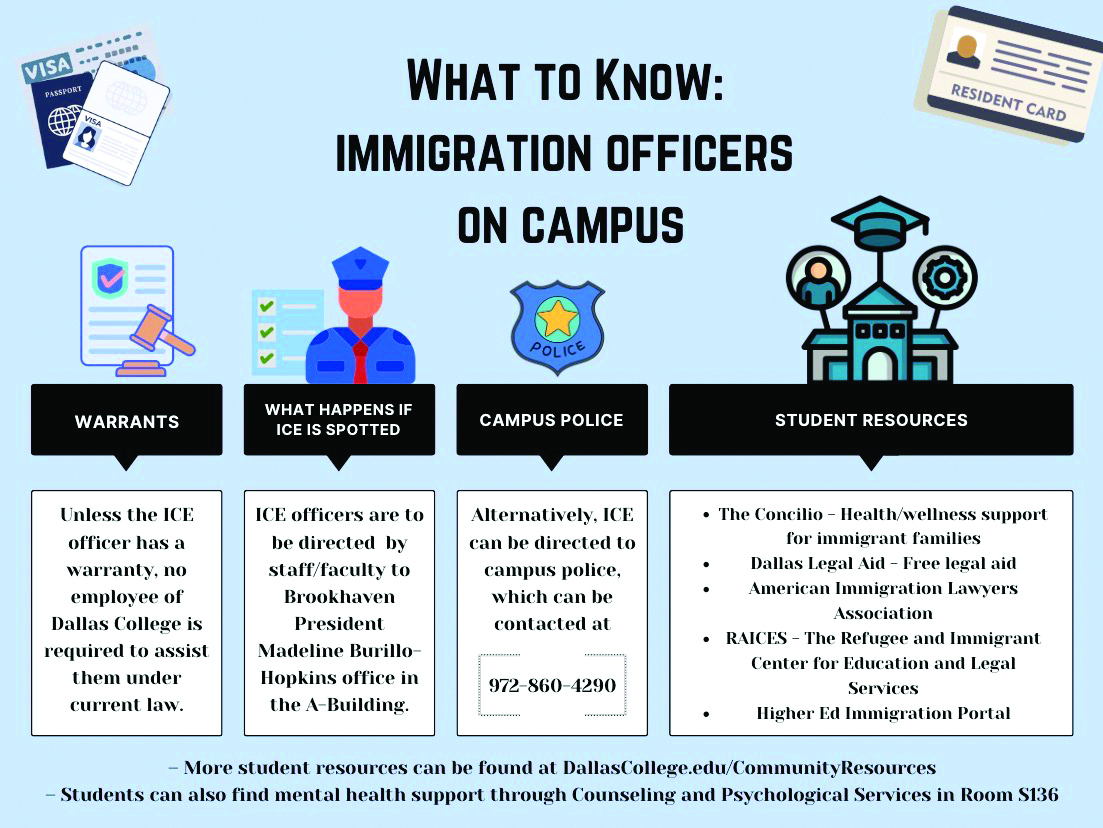Republican presidential candidate Donald Trump will take office on Jan. 20 after his presidential inauguration. Trump, who won the election in 2016, will be the first president since Grover Cleveland to serve two presidential terms non-consecutively.
His campaign appealed to enough people to win over the states of Pennsylvania, Michigan and Wisconsin, which were key battle-ground states of his opponent, Kamala Harris’s “Northern Blue Wall” strategy. Not only did Trump claim the presidency, but the Republican Party managed to flip four Senate seats and maintain a House majority. With all this coming in such a chaotic season, it leaves the nation with a few questions: How did Trump and the Republican Party flip so much of the voting class in their favor? What went wrong for the Democratic Party? Most importantly, what comes next?
Strategy
Trump surged from behind the eight ball to handily take the presidency while becoming the first Republican candidate to win the popular vote since George W. Bush in 2004. While Bush was able to ride the war on terror in the wake of the highest presidential approval ratings in history, Trump was coming off a presidential defeat in 2020 and a criticism over his handling of the COVID-19 pandemic.
Trump announced his running mate JD Vance on July 15 via a post on his social media app Truth Social. While they align politically, many analysts were left scratching their heads as Ohio had voted for Trump in each of the previous presidential elections, even increasing its lean toward Trump by 2% in 2020.
Campaign
Trump’s entire campaign centered around the failures of Biden’s presidency and its economic shortcomings. Polling indicated that a majority of voters felt that Trump’s policy was better for the economy than Joe Biden and Kamala Harris. Trump’s campaign often resembled back to the campaign of Ronald Reagan, who many voters liked for making people feel good about being an American. Gen Z men voted overwhelmingly for Donald Trump, in a move that surprised many pollsters. Some analysts have called this the “bro” vote. When asked about voting for Trump, Dallas College student Thomas Walker said, “I feel like Trump sees young men.” He said, “[Trump] makes me feel good to be a man,” a statement reminiscent of the previously mentioned Reagan campaign. Votes do not spawn from a vacuum though, and where Trump and the Republican Party flourished, the Democratic Party fell short.
Opposition
Kamala Harris and the Democrats won the vote of the consistent Democratic base: the “Black vote.” That was the only expected victory that Harris received. Her campaign wanted to dominate the Gen Z and Hispanic vote, but instead leaned towards Trump; Harris aimed to sweep the women’s vote but, she failed. These shortcomings were brought on because Donald Trump appealed to the demographics that she did not, in places she did not target.
When asked about Harris, Walker answered, “I just don’t feel like she cares about men.” Harris’s campaign brought beloved Minnesota Governor Tim Walz on board to attempt to appeal to some undecided voters. Harris and Walz, both gun owners, attempted to appeal to gun owners that Americans needed to be more responsible for gun violence in America.
The voting public perceived that the economy was continuously declining and that Trump would come and fix it.
Harris was in a disadvantaged position as she was associated with the Biden administration, which had been falling in the public’s disapproval ever since the pandemic. She was not able to overcome the seeming confusion about the role as the vice president, with a common line from the Trump campaign being “Why hasn’t she done these things already since she’s in power?” The simple answer is that it is not her role, but regardless, these holes were enough to sink her campaign.
Policy Anxiety
Many voters have begun expressing concern for their futures under the Trump administration. When asked about her feelings about Trump’s election, student Lauren Lopez referenced a Florence and the Machine lyric, “Are you afraid, because I’m terrified.” A large population of young women are scared for their futures as the Republican party has consistently opposed abortion rights for the past half-century and now, they would have an opportunity to fully enshrine a national abortion ban, should President-elect Trump waiver on his promise to veto such a bill.
The economy has consistently trended downward since the Republican party’s sweeping victory, and many economists are concerned about what they see as an uncertain economic future. Student Kiya Cooper said, “Now I’m not sure if I’ll be able to afford to continue school.” The widely unpopular Ted Cruz’s victory over up-and-comer Collin Allred also means that Texas will remain a solid red state.








